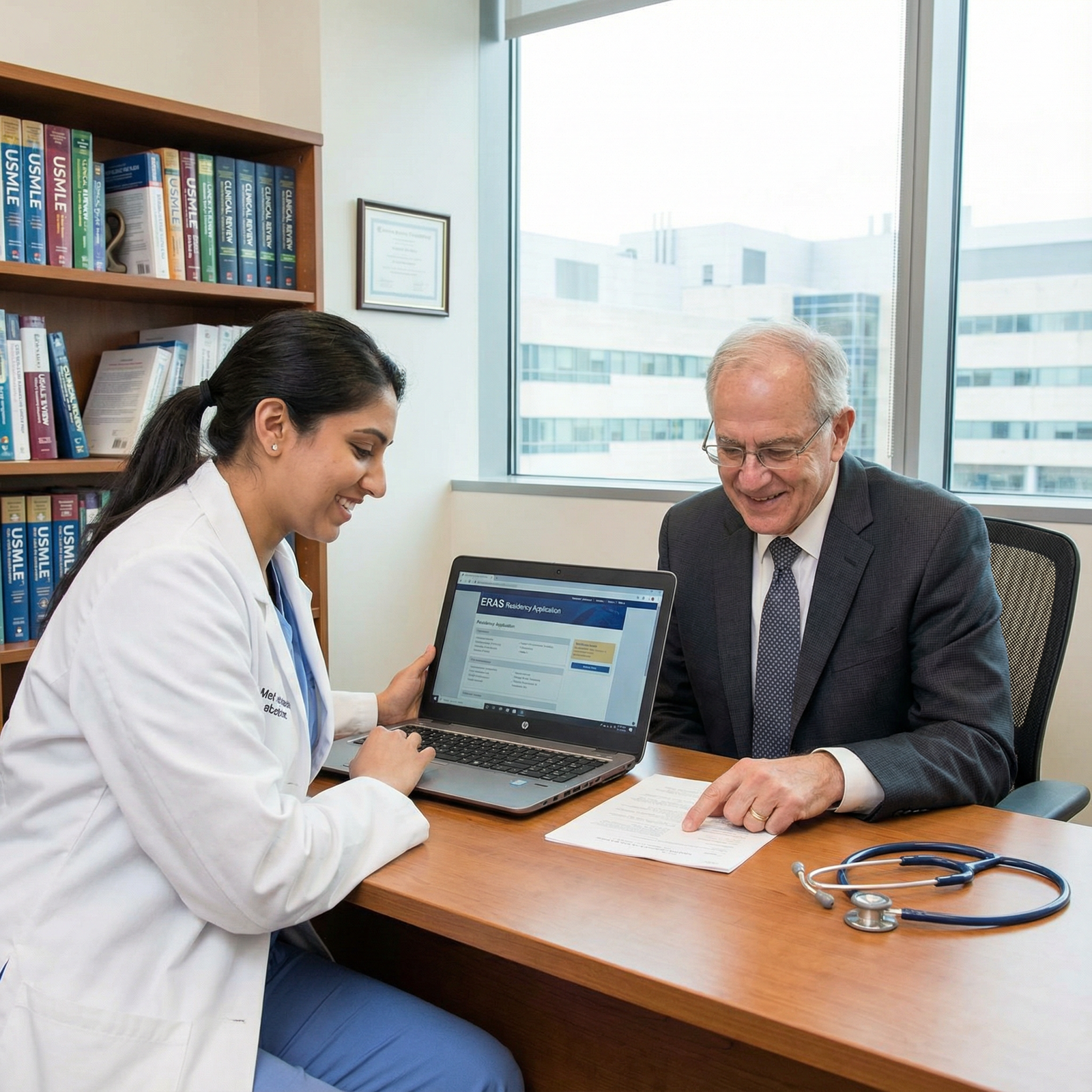
Standing Out with Lower USMLE Scores: Strategic Guide for Residency Applications
Navigating residency applications with lower USMLE scores is challenging—but far from impossible. Many successful residents and attendings matched with scores below a program’s average by strategically strengthening other parts of their application and telling a coherent, compelling story about their growth and potential.
This guide focuses on practical, high-yield strategies to help you stand out in a crowded field, maximize your chances of matching, and continue your long-term career development in medicine.
Understanding How Programs Use USMLE Scores
Before deciding on your strategy, it’s essential to understand how residency programs typically use USMLE scores in the broader context of Medical Education and selection.
The Real Role of USMLE Scores in Residency Applications
USMLE Step scores are primarily used for:
Initial screening/filtering
Many programs set score cutoffs (formal or informal) to manage large volumes of applications. A lower score may reduce the number of automatic interview offers, but it does not automatically end your chances—especially if you are strategic about where you apply.Risk assessment and prediction of board passage
Programs worry about their board pass rates. Scores are often viewed (imperfectly) as predictors of in-training exam and board performance. Showing improvement over time and strong clinical evaluations can counterbalance concerns.Context, not destiny
With Step 1 now pass/fail (for recent test takers), more emphasis has shifted to:- Step 2 CK score trends
- Clerkship grades and narrative comments
- Letters of Recommendation
- Personal statement and interview performance
Programs increasingly look at the whole application—especially for candidates who demonstrate resilience, growth, and outstanding clinical skills.
When You Have a Low Score: Key Mindset Shifts
If you have a low Step 1 or Step 2 CK score:
Accept it, don’t ignore it
Pretending it doesn’t matter is unhelpful. Acknowledge it privately, understand why it happened, and focus on what you can control now.Frame your story around growth
Program directors respect applicants who:- Identify weaknesses
- Develop a plan
- Show improvement in later exams, rotations, or responsibilities
Play to your strengths
Double down on what is strong: clinical performance, research, leadership, unique experiences, or communication skills.
Elevating Your Personal Statement into a Strategic Asset
Your personal statement is one of the few parts of your application where you have complete control over the narrative. With lower USMLE scores, this becomes even more crucial.
Crafting a Compelling Narrative That Adds Context (Without Making Excuses)
Use your personal statement to answer three key questions for selection committees:
- Who are you as a future resident and physician?
- Why this specialty and career path?
- What makes you worth investing in despite any red flags (e.g., low scores)?
You can do this by:
Highlighting meaningful clinical experiences
Go beyond generic “I love helping patients.” Instead, be specific:- Briefly describe a case: what happened, what you did, what you learned.
- Focus on skills relevant to residency: teamwork, communication, resilience, ethical reasoning.
Addressing challenges strategically
If your low score resulted from:- Health issues
- Personal/family crisis
- Adjustment to a new country or language
- Test-taking anxiety
You can mention this—but keep it: - Brief
- Factual
- Focused on what you changed and learned, not on blaming circumstances
Example approach:
“During my second year, I experienced [challenge]. My performance on Step 1 reflected that period. Since then, I have [specific steps taken—study methods, wellness strategies, academic remediation]. These changes are reflected in [strong clerkship grades, improved Step 2 CK, honors in sub-internships].”Demonstrating growth and maturity
Program directors are drawn to applicants who:- Reflect honestly on mistakes or weaknesses
- Show humility without self-deprecation
- Provide concrete examples of improvement
Practical Tips for a High-Impact Personal Statement
- Keep it ~1 page, clear and well-structured.
- Avoid clichés (“I have wanted to be a doctor since I was five…”).
- Make sure every paragraph adds something new:
- Origin of interest in the specialty
- Key clinical experiences
- Your strengths and values
- Future goals and fit with residency training
- Have multiple people review it:
- A mentor in your chosen specialty
- Someone strong in writing/editing
- Ideally a resident or faculty familiar with selection

Leveraging Letters of Recommendation to Overcome Lower Scores
Letters of Recommendation (LoRs) are one of the most powerful tools to counterbalance lower USMLE scores. Strong, specific letters from credible faculty can significantly shift how your application is perceived.
Choosing the Right Letter Writers
Prioritize letter writers who:
Know you well clinically
Ideal: supervising attendings from core clerkships and sub-internships who can speak to:- Clinical reasoning
- Work ethic
- Communication skills
- Professionalism
- Ability to function at the level of an intern
Practice in your chosen specialty
For competitive fields especially, a specialty-specific LoR (e.g., from an internal medicine attending for IM) carries more weight than a generic letter.Have strong reputations or titles
Program directors, clerkship directors, or division chiefs reading your LoR may recognize:- Department chairs
- Program directors
- Well-known subspecialists
But a detailed letter from a less famous clinician who knows you well is usually better than a vague letter from a big name who barely worked with you.
Helping Your Letter Writers Help You
Make it easy for them to write a powerful letter:
Schedule a meeting (virtual or in-person) to:
- Share your career goals and target specialty
- Briefly, honestly mention your Step scores and your growth story
- Ask if they feel comfortable writing a strong, supportive letter
Provide a short “letter writer packet”:
- Updated CV
- Personal statement draft
- ERAS/CV summary or bullet points of key experiences
- A short reminder of specific cases or projects you worked on with them
You might say:
“I hope your letter can highlight my clinical reasoning, work ethic, and growth over the rotation, especially in the context of my long-term commitment to [specialty].”
Diversifying Your Letters of Recommendation
Aim for a set of LoRs that collectively demonstrate:
Strong clinical performance
Core clerkship or sub-I letters.Fit for your chosen specialty
Letters from faculty in that field, especially those who can say:- “Functions at or above the level of an intern”
- “I would be happy to have this applicant as a resident in our program.”
Broader strengths and career development
Optional letters:- Research mentors (for academically oriented programs)
- Long-term volunteer or leadership advisors
- Faculty from additional clinical settings (e.g., community hospital, VA)
Showcasing Unique Experiences, Clinical Strength, and Professional Growth
With lower USMLE scores, you must make the rest of your application impossible to overlook.
Building a Strong Clinical Profile
Programs want residents who can take care of patients safely and efficiently from day one. Show this by:
Maximizing sub-internships (sub-Is) and audition rotations
- Choose sub-Is strategically in your target specialty and at programs or regions where you want to match.
- Treat each sub-I as a month-long interview.
- Ask for feedback mid-rotation and adjust in real time.
- If available, do an away rotation at a program that is more IMG-friendly or historically open to applicants with diverse academic backgrounds.
Highlighting honors and narrative comments
- In ERAS, make sure that strong evaluations are included and, if needed, emphasized in your application.
- In your personal statement or interview, reference specific feedback you received and how you acted on it.
Engaging in additional clinical work (where permitted)
- Clinical observerships (for IMGs)
- Volunteer roles in free clinics
- Scribing or clinical assistant roles (if allowed in your region)
Making Extracurriculars Work for You
Your extracurriculars should reinforce your story and your specialty choice:
Volunteer work with a clear connection
- Emergency department volunteer → EM or IM
- Palliative care/hospice → IM, FM, Psych
- Student-run clinic → Primary care, IM, Pediatrics
Be specific in ERAS descriptions: describe your responsibilities, not just the organization.
Research and scholarly activity
- Even one or two solid projects (abstracts, posters, quality improvement) can show:
- Intellectual curiosity
- Perseverance
- Ability to complete long-term work
- If you can, aim to:
- Present at local or national conferences
- Join quality improvement projects in your department
- Co-author a case report with a mentor
- Even one or two solid projects (abstracts, posters, quality improvement) can show:
Leadership and teaching
- Leadership roles in interest groups, student organizations, or community projects show:
- Initiative
- Teamwork
- Responsibility
- Teaching roles (tutoring, near-peer teaching, anatomy TA, Step prep mentor) highlight communication skills and mastery of content.
- Leadership roles in interest groups, student organizations, or community projects show:
Mastering Residency Interviews When You Have Lower Scores
If you secure interviews, you have cleared the biggest hurdle. Interviews are your opportunity to humanize your application, address your scores, and leave a strong impression.
Preparing for High-Yield Residency Interview Questions
Be ready for:
Common questions
- “Tell me about yourself.”
- “Why this specialty?”
- “Why our program?”
- “What are your strengths and weaknesses?”
- “Tell me about a challenge you faced in medical school.”
Questions that may indirectly touch your scores
- “Tell me about a time you failed.”
- “What is something in your application you wish you could change?”
- “How do you handle stress or pressure?”
Craft concise, honest responses using the STAR format (Situation, Task, Action, Result). For example, when discussing a low Step score:
- Situation: Brief context
- Task: What you needed to achieve or learn
- Action: Concrete changes or strategies you used
- Result: Improvement (in later exams, clinical grades, performance, wellness)
Avoid:
- Over-explaining or sounding defensive
- Blaming others, your school, or the exam system exclusively
- Bringing it up if the interviewer clearly doesn’t care—only address it if asked or if you can integrate it naturally into a growth narrative
Showcasing Non-Score Strengths in the Interview
Use the interview to highlight:
- Cases where you went above and beyond for patients
- Examples of teamwork, conflict resolution, or leadership
- Specific reasons you are drawn to that program:
- Patient population
- Educational structure
- Unique rotations or tracks
- Research or global health opportunities
Practicing and Getting Feedback
- Schedule mock interviews with:
- Faculty advisors
- Residents
- Career services
- Record yourself (video) to evaluate:
- Clarity
- Filler words
- Body language
- Eye contact and tone
- Prepare thoughtful questions for programs that show:
- You have done your homework
- You understand their curriculum and culture
- You are thinking about your long-term career development
Strategic Application Planning, Gap Years, and Alternative Pathways
Your overall application strategy can significantly influence your match outcome, especially with lower USMLE scores.
Applying Smart: Program Selection and Timing
Apply early and completely
- Have your ERAS application, personal statement, and LoRs ready as close to opening day as possible.
- Don’t delay Step 2 CK reporting if your score is an improvement.
Cast a wide but thoughtful net
- Apply to a sufficient number of programs based on your specialty competitiveness, geographic flexibility, and academic profile.
- Use tools like:
- NRMP Charting Outcomes
- FREIDA
- Program websites to identify:
- Programs with a broader score range
- Programs that are IMG-friendly (if applicable)
- Community-based or hybrid programs that may be more holistic
Tailor your application to each program
- Briefly mention specific features in your personal statement or supplemental application (if required).
- In interviews, be specific about why their training environment fits your goals.
Considering Research Years, Fellowships, or Additional Training
If your scores significantly limit your chances in a given cycle or specialty, you may choose to strengthen your profile through:
Dedicated research years or fellowships
- Particularly helpful for:
- Competitive specialties (e.g., Derm, Ortho, ENT)
- Applicants aiming for academic careers
- Focus on:
- Publications
- Presentations
- Letters from research mentors
- Longitudinal projects
- Particularly helpful for:
Additional clinical experience
- For IMGs especially:
- U.S. clinical experience (USCE)
- Research + clinical observerships
- For all candidates:
- Quality improvement fellowships
- Post-graduate clinical positions where available
- For IMGs especially:
Post-baccalaureate or master’s programs
- More useful for:
- Demonstrating academic improvement
- Applicants early in training or considering changing paths
- If you already have a medical degree, consider:
- MPH, MS in Clinical Research, or relevant graduate degrees only if they clearly advance your specific career goals.
- More useful for:
Always weigh the time, cost, and opportunity against the likely benefit for your target specialty and programs.

Maintaining Resilience, Perspective, and a Long-Term Career Vision
Residency applications can be emotionally taxing, especially when you feel defined by a single number. It’s important to protect your well-being and keep perspective.
Focusing on Skills and Growth Over Scores
- Remember that:
- Many outstanding physicians had non-linear paths.
- Compassion, communication, and clinical judgment are not measured by USMLE alone.
- Commit to:
- Continuous improvement (lifelong learning)
- Seeking feedback and mentorship
- Reflective practice and self-awareness
Building a Support System
- Stay connected with:
- Mentors (faculty, residents, advisors)
- Peers going through the process
- Family and friends who understand your long-term goals
- Consider:
- Professional counseling if stress, burnout, or anxiety become overwhelming.
- Wellness habits: sleep hygiene, exercise, setting boundaries during the application season.
FAQ: Residency Applications with Lower USMLE Scores
1. Can I still match into residency with low USMLE scores?
Yes. Many applicants with lower USMLE scores match every year, particularly when they:
- Apply strategically to an adequate number of programs.
- Show strong clinical performance, especially in core rotations and sub-internships.
- Secure detailed, enthusiastic Letters of Recommendation.
- Present a coherent narrative of growth in their personal statement and interviews.
- Are flexible with geography and consider a range of programs (including community-based).
Your scores are one factor—not your entire professional identity.
2. Should I address my low score directly in my personal statement or interview?
It depends:
Personal statement:
- If your score is a clear outlier and there was a specific, time-limited cause (illness, major life event, transition), a brief explanation plus evidence of improvement can help.
- Avoid excessive detail or a defensive tone. Emphasize what you changed and how you improved.
Interview:
- Be prepared with a concise, honest explanation if asked.
- Focus on:
- Insight into what happened
- Concrete steps taken to improve
- Positive outcomes (better Step 2 CK, strong clinical grades, etc.)
If your score is low but not extreme, and there is no specific story to tell, you do not need to highlight it proactively.
3. How important are Letters of Recommendation compared to USMLE scores?
For many programs—especially once you pass initial filters—Letters of Recommendation can be as important as, or more important than, scores. Strong LoRs that:
- Emphasize your clinical competence
- Describe you as reliable, teachable, and a team player
- Endorse you strongly (“I would rank this applicant highly”)
can significantly mitigate concerns about lower scores. This is especially true in specialties and programs that value hands-on performance and teamwork.
4. What if I have limited research or extracurriculars on top of low scores?
You can still build a competitive story by:
- Prioritizing strong clinical evaluations and LoRs.
- Engaging in at least one or two meaningful non-clinical activities:
- Community service
- Teaching/tutoring
- Quality improvement projects
- Seeking short, realistic research experiences:
- Case reports
- Retrospective chart reviews
- QI projects with measurable outcomes
Depth matters more than sheer quantity. Programs would rather see a few well-executed, long-term commitments than a long list of superficial activities.
5. Is it worth taking time for a research year or additional training to improve my chances?
It can be, but it depends on your goals:
More helpful if:
- You are targeting a highly competitive specialty.
- You can secure a strong, structured position with good mentorship.
- You will likely produce tangible outcomes (papers, abstracts, strong LoRs).
Less helpful if:
- You choose a random or unstructured program without clear deliverables.
- You are doing it solely to “fill time” without strategy.
- The time and financial cost outweigh the potential benefits.
Discuss this with mentors in your target specialty and review match data to make an informed decision.
By understanding how programs view USMLE scores and intentionally strengthening every other part of your residency application, you can stand out in a crowded field—even with lower scores. Focus on demonstrating who you are as a clinician, teammate, and future colleague, and build a narrative of resilience, growth, and genuine commitment to patient care.






















